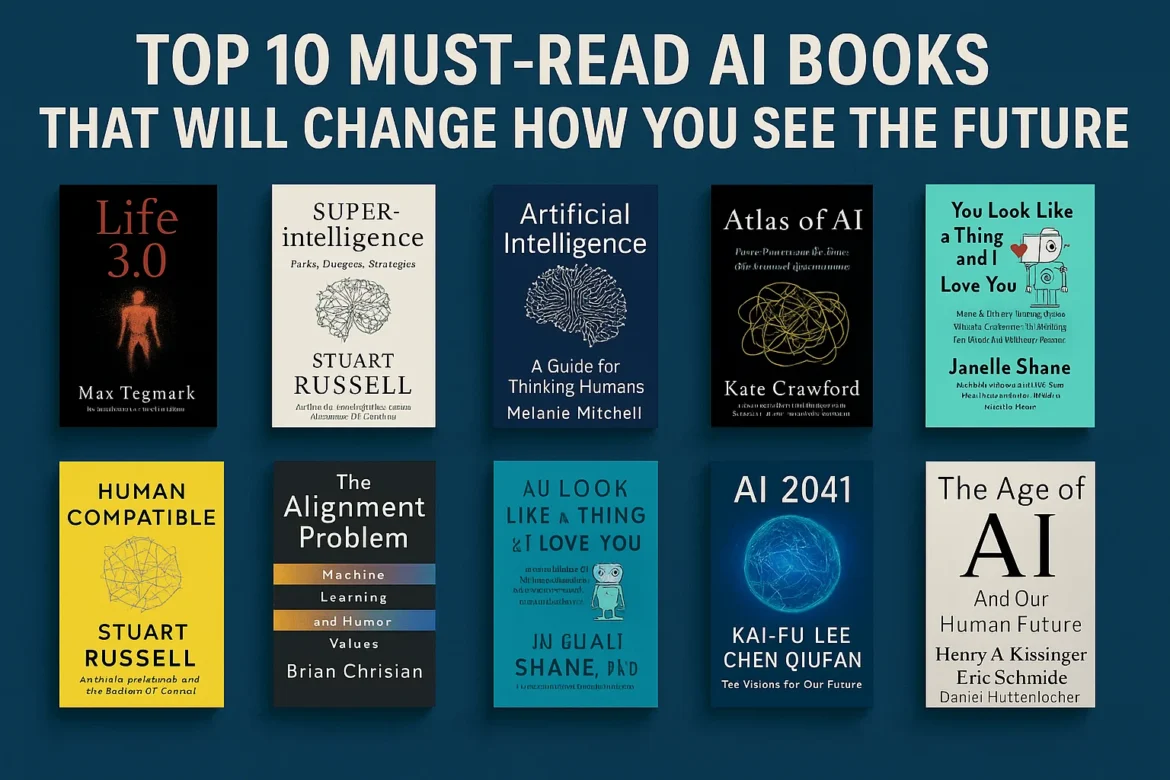Artificial intelligence (AI) is no longer just a futuristic concept; it is a transformative force reshaping industries, societies, and the very fabric of daily life. As AI technologies advance rapidly in 2025, understanding their implications, capabilities, and challenges is more critical than ever. Whether a student, professional, entrepreneur or simply curious about AI’s impact, reading the right books can profoundly change how you perceive the future. Here, we present the top 10 must-read AI books of 2025 that offer deep insights, practical knowledge, ethical reflections, and visionary perspectives to help you grasp the evolving AI landscape.
Artificial Intelligence: A Modern Approach – Stuart J. Russell & Peter Norvig
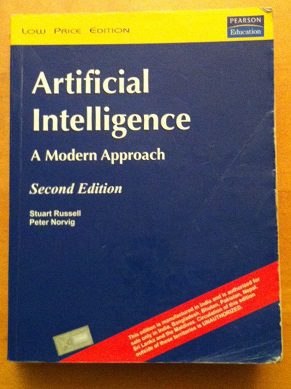
Widely regarded as the definitive textbook on AI, Artificial Intelligence: A Modern Approach remains essential for anyone serious about understanding AI. Russell and Norvig expertly guide readers through the foundations of AI, covering topics from search algorithms and knowledge representation to machine learning and robotics. This book stands out because it balances theoretical rigor and practical application, making complex concepts accessible without sacrificing depth. It also addresses philosophical questions about intelligence and the future of AI, encouraging readers to think critically about the technology’s broader implications. Whether you are a beginner or a seasoned AI practitioner, this book provides a comprehensive framework to shape how you view AI’s potential and limitations.
The Alignment Problem: Machine Learning and Human Values – Brian Christian
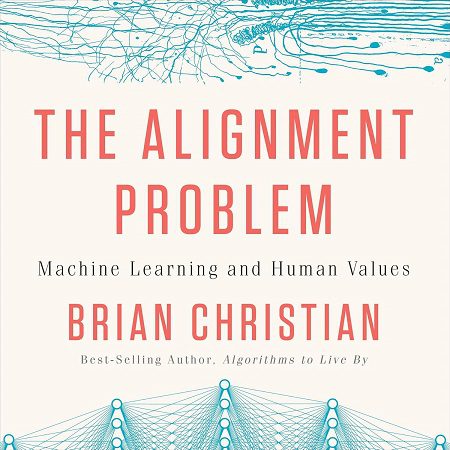
One of the most pressing challenges in AI today is ensuring that intelligent systems align with human values and ethics. Brian Christian’s The Alignment Problem delves into this critical issue by blending history, expert interviews, and on-the-ground reporting. The book explores how biases and blind spots in AI development can lead to unintended consequences, highlighting the complexity of creating machines that understand and respect human goals. Christian’s engaging narrative makes this a thought-provoking read for anyone interested in AI’s ethical and societal dimensions. It challenges readers to consider what AI can do and what it should do, reshaping how we think about the responsibility of building intelligent systems.
Artificial Intelligence: A Guide for Thinking Humans – Melanie Mitchell
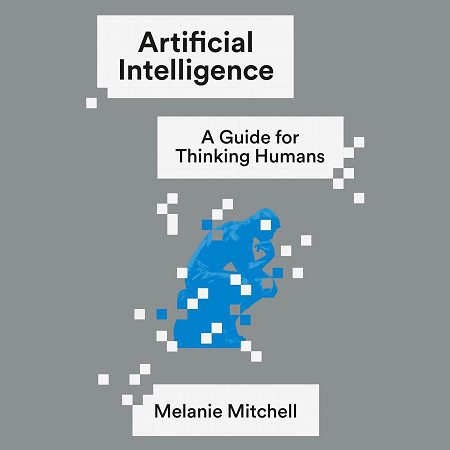
Melanie Mitchell’s book offers an accessible yet nuanced overview of AI’s current state, blending technical insights with reflections on AI’s limitations. She demystifies AI achievements while cautioning against overestimating machine intelligence, emphasizing that truly human-like AI remains a distant goal. Mitchell’s writing is clear and engaging, making complex topics understandable to a broad audience. She also explores ethical concerns and the societal impact of AI deployment, encouraging readers to maintain a critical perspective. This book is ideal for those who want a realistic, balanced understanding of AI’s capabilities and challenges, helping reshape expectations about the technology’s role in our future.
Co-Intelligence: Living and Working with AI – Ethan Mollick
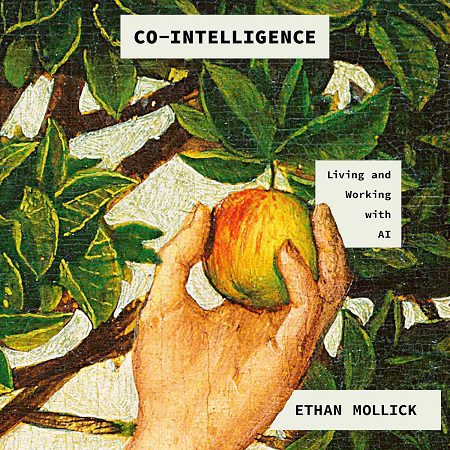
Ethan Mollick’s Co-Intelligence reframes AI not as a mere tool but as a collaborative partner that can amplify human creativity and productivity. Through practical examples and thoughtful analysis, Mollick explores how AI can serve as a coworker, mentor, tutor, and creative ally. This perspective challenges traditional views of AI as a replacement for human labor and highlights its potential to enhance human capabilities. The book also addresses ethical considerations and the importance of maintaining human agency in an AI-augmented world. For readers interested in the future of work and human-AI collaboration, Co-Intelligence offers inspiring and actionable insights that will change how you think about AI’s integration into everyday life.
The Singularity Is Nearer: When We Merge with AI – Ray Kurzweil
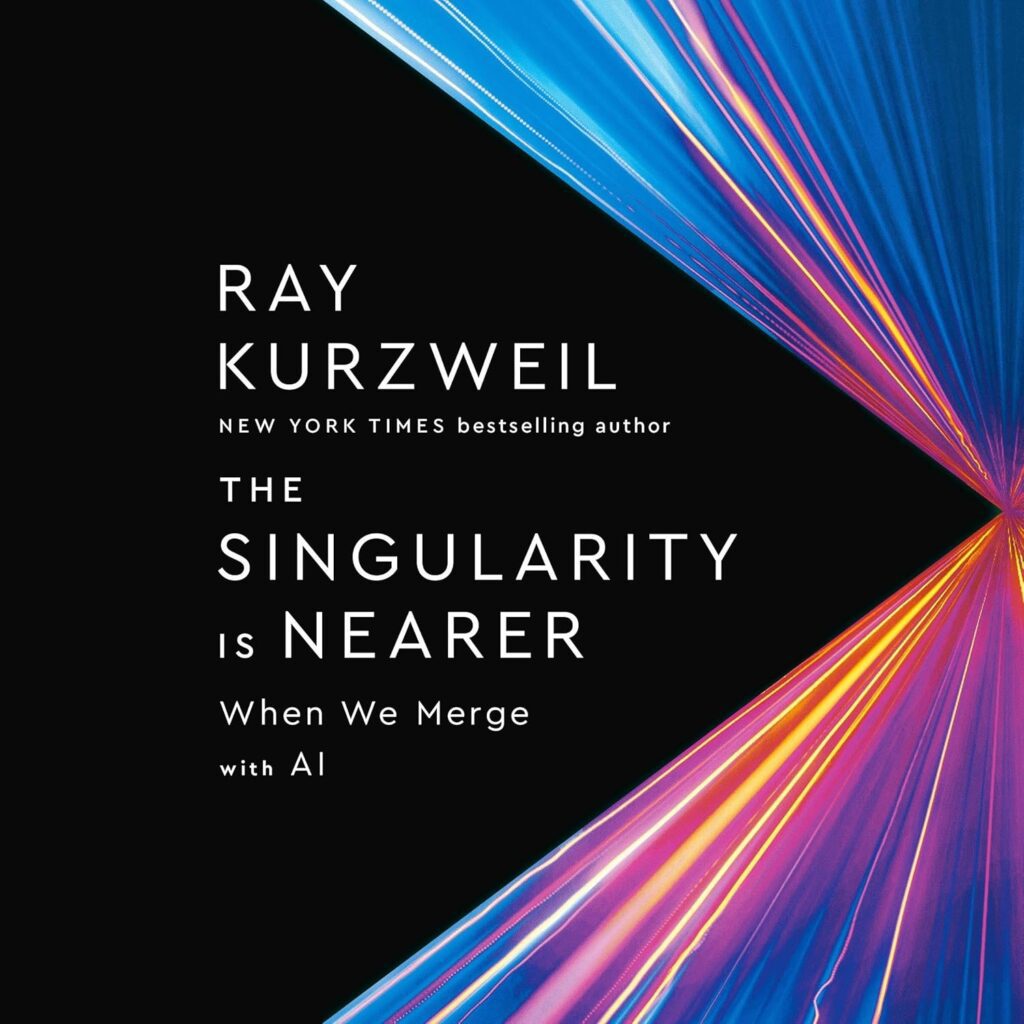
Ray Kurzweil’s visionary work explores the accelerating convergence of human and machine intelligence, envisioning a future where AI and humans merge to create superintelligent entities. Building on his earlier predictions, Kurzweil discusses breakthroughs in brain-computer interfaces, nanotechnology, and biotechnology that could transform human cognition and society. The book also grapples with ethical and existential questions this potential singularity raises, including risks and opportunities. For futurists and anyone fascinated by the long-term trajectory of AI, The Singularity Is Nearer offers a compelling narrative that challenges conventional ideas about intelligence and humanity’s future.
The Master Algorithm: How the Quest for the Ultimate Learning Machine Will Remake Our World – Pedro Domingos
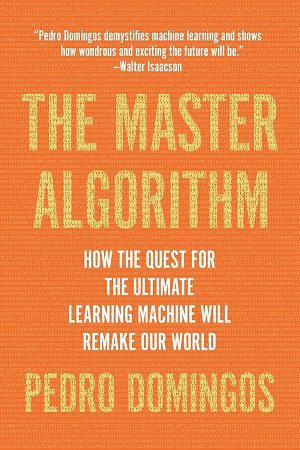
Pedro Domingos presents a captivating exploration of machine learning’s diverse approaches, dividing the field into five “tribes” and proposing the possibility of a unifying “master algorithm.” This book offers technical depth and accessible explanations, making it suitable for readers curious about how AI systems learn and evolve. Domingos also discusses the profound societal implications of such an algorithm, from transforming industries to reshaping economies. By illuminating the inner workings of AI and its future potential, The Master Algorithm encourages readers to rethink the power and scope of machine learning in shaping tomorrow’s world.
AI Snake Oil: What Artificial Intelligence Can Do, What It Can’t, and How to Tell the Difference – Arvind Narayanan & Sayash Kapoor
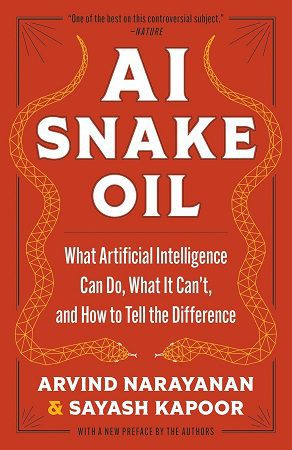
In AI Snake Oil, Narayanan and Kapoor critically examine the hype surrounding AI technologies, helping readers distinguish between genuine innovation and overblown claims. The book debunks myths about predictive AI and highlights the risks of misplaced trust in automated systems. Through clear explanations and real-world examples, the authors equip readers with the tools to assess AI products and claims critically. This book is essential for anyone seeking a realistic understanding of AI’s capabilities and limitations, fostering a more informed and skeptical perspective on the technology’s promises.
Life 3.0: Being Human in the Age of Artificial Intelligence – Max Tegmark
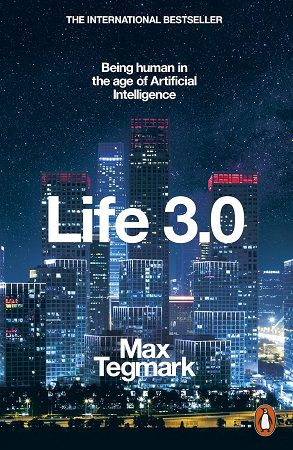
Max Tegmark’s Life 3.0 explores the future of AI and its potential to redefine life itself. The book examines scenarios ranging from beneficial coexistence with AI to existential risks posed by superintelligent machines. Tegmark blends scientific analysis with philosophical inquiry, inviting readers to consider how humanity can develop AI toward positive outcomes. The book’s accessible style and visionary scope make it a must-read for anyone interested in the profound questions AI raises about intelligence, consciousness, and the future of civilization.
Rebooting AI: Building Artificial Intelligence We Can Trust – Gary Marcus & Ernest Davis
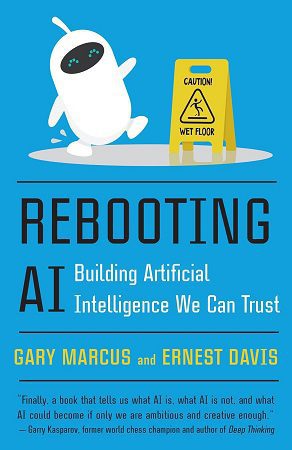
Gary Marcus and Ernest Davis critically assess current AI technologies in Rebooting AI, arguing that despite impressive advances, today’s systems lack common sense and robust understanding. They advocate for a new approach that integrates cognitive science insights with machine learning to build more reliable and trustworthy AI systems. The book offers a sober perspective on AI’s limitations and a hopeful vision for its future development. For readers concerned about AI’s reliability and safety, Rebooting AI provides an essential roadmap for building better intelligent machines.
Hello World: Being Human in the Age of Algorithms – Hannah Fry
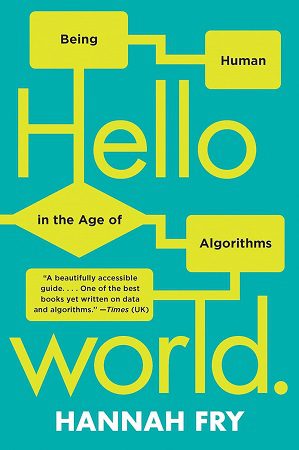
Hannah Fry’s Hello World explores how algorithms increasingly influence our lives, from healthcare and justice to social media and finance. Fry combines storytelling with critical analysis to reveal both the benefits and pitfalls of algorithmic decision-making. She emphasizes the importance of transparency, accountability, and human oversight in algorithmic systems. This book is compelling for anyone interested in the intersection of AI, society, and ethics, encouraging readers to think carefully about the role algorithms play in shaping our future.
Why These Books Will Change How You See the Future
The AI books above cover various perspectives—from technical foundations and practical applications to ethical considerations and visionary futures. Together, they provide a multi-dimensional understanding of AI’s capabilities, challenges, and transformative potential. Reading these works will deepen your knowledge and reshape your worldview, helping you appreciate AI as a powerful but complex force that demands thoughtful engagement. Whether you want to build AI systems, influence policy, or understand the technology shaping tomorrow, these books offer indispensable insights to prepare you for the rapidly evolving AI era.
Final Thoughts
AI is no longer confined to labs or science fiction; it is embedded in our daily lives and poised to redefine the future. By exploring these top 10 must-read AI books of 2025, you can access the latest thinking, ethical frameworks, and visionary ideas that will empower you to navigate and influence this transformative landscape. Investing time in these books will change how you see the future—not just as a place shaped by technology but as a domain where human values, creativity, and intelligence evolve alongside machines. Embrace this journey of discovery and be part of the conversation shaping the age of artificial intelligence.
Frequently Asked Questions
Who should read these AI books?
These books are suitable for a wide audience, including beginners interested in AI fundamentals, professionals seeking advanced knowledge, policymakers exploring ethical implications, and anyone curious about how AI will shape the future.
Do these books cover AI ethics and societal impact?
Yes, several titles such as The Alignment Problem by Brian Christian and Hello World by Hannah Fry focus extensively on ethical challenges, biases, and the societal consequences of AI deployment.
Are these books technical or accessible for general readers?
The list includes a mix of both. Books like Artificial Intelligence: A Modern Approach are more technical, while others like Artificial Intelligence: A Guide for Thinking Humans and Co-Intelligence are written in an accessible style for general readers.
How will reading these books change my view of AI?
These books provide a comprehensive understanding of AI’s capabilities, limitations, ethical considerations, and future potential, helping readers develop a nuanced and informed perspective on how AI will influence technology, society, and daily life.
Can these books help me in my career related to AI?
Absolutely. Whether you are a developer, researcher, business leader, or policymaker, these books offer valuable insights that can enhance your understanding of AI technologies, ethical frameworks, and strategic implications, empowering you to make better decisions and innovate responsibly.
Helpful Links
- HTML Links Tutorial | W3Schools
- Web Authoring FAQ: Hyperlinks | HTMLHelp.com
- Links Using HTML | BBC Bitesize
- Creating FAQ Sections with HTML & CSS | Dev.to
- How to Code Interactive FAQ Section | YouTube Tutorial
For more AI book recommendations and reviews, check trusted educational platforms and book retailers to find the latest and most comprehensive resources.
📚 Also Read
Nexus by Yuval Noah Harari
A powerful take on the evolution of human communication in the AI age.
Unmasking AI by Joy Buolamwini
A bold call against algorithmic bias and AI injustice.
How AI Will Shape Our Future
Pedro Uria Recio’s essential vision for future innovators.
Unlocking Artificial Intelligence
Comprehensive AI guide for students and professionals by Christopher Mutschler.
Supremacy: AI, ChatGPT, and the Race
An in-depth review of the global race shaping AI supremacy.
Hands-On Machine Learning
Aurélien Géron’s practical AI guide using Scikit-Learn, Keras & TensorFlow.
The Optimist: Sam Altman & OpenAI
A look at OpenAI’s bold mission to invent the future of intelligence.
AI: A Modern Approach (4th Ed.)
The definitive textbook shaping the AI generation.
The Singularity Is Near
Ray Kurzweil’s visionary insight into the merging of humans and machines.
The Coming Wave by Mustafa Suleyman
Explore the future of AI and technological disruption in this must-read book.
Affiliate Disclosure:
This article contains affiliate links to products on Amazon.com. As an Amazon Associate, I earn from qualifying purchases at no additional cost to you. This means if you click on a link and make a purchase, I may receive a small commission that helps support this site. I only recommend products I personally trust and believe will add value to you. Thank you for your support!


